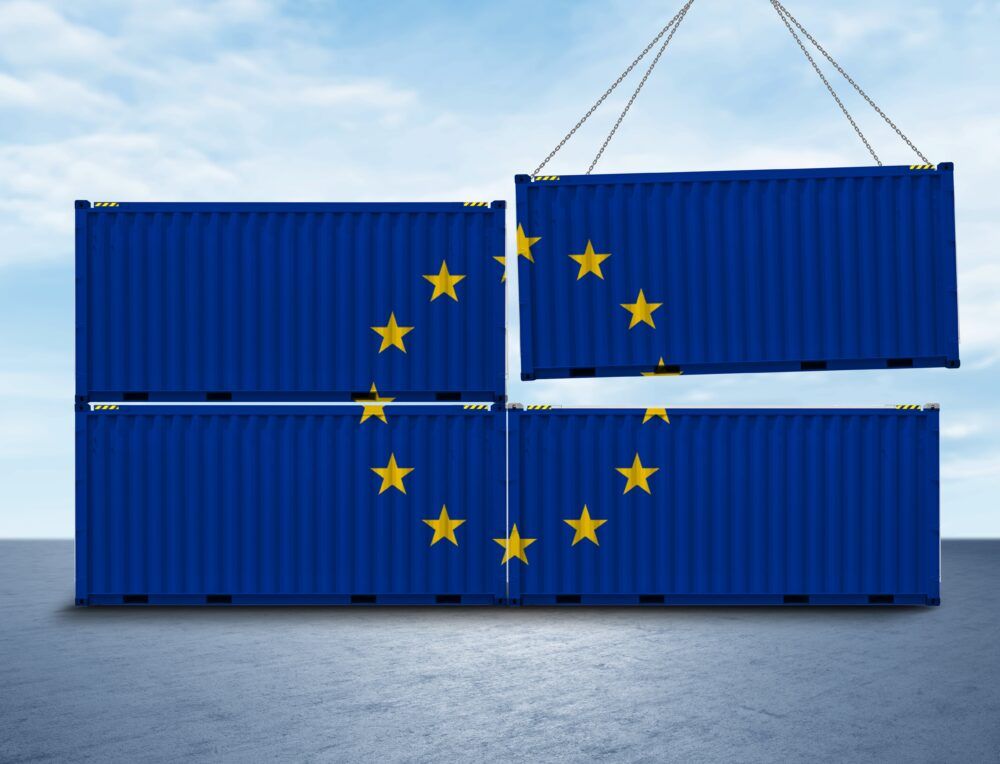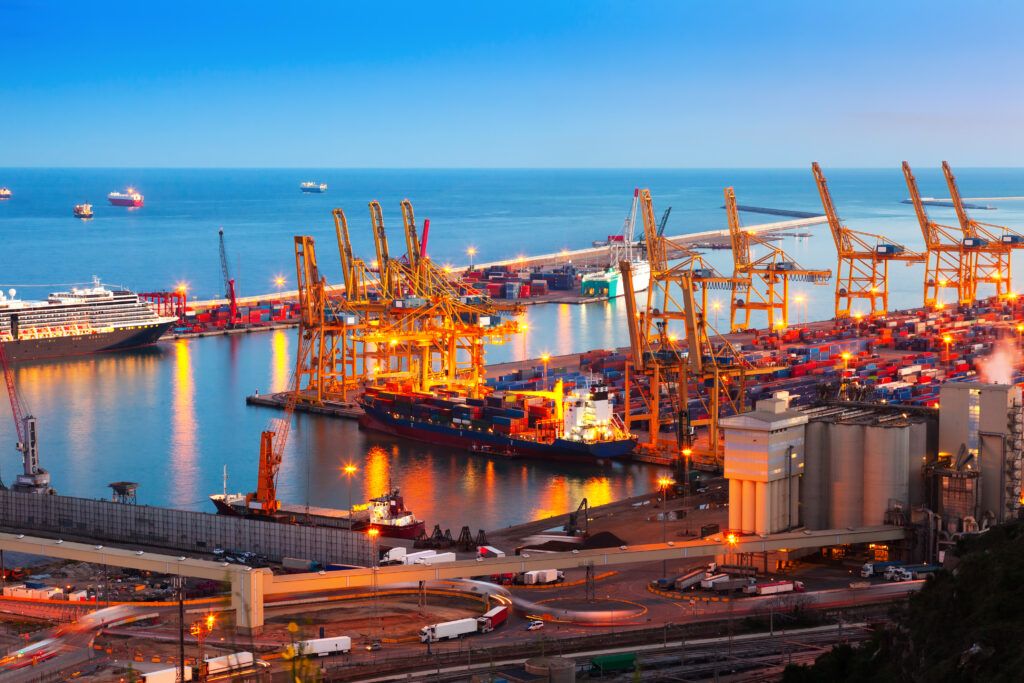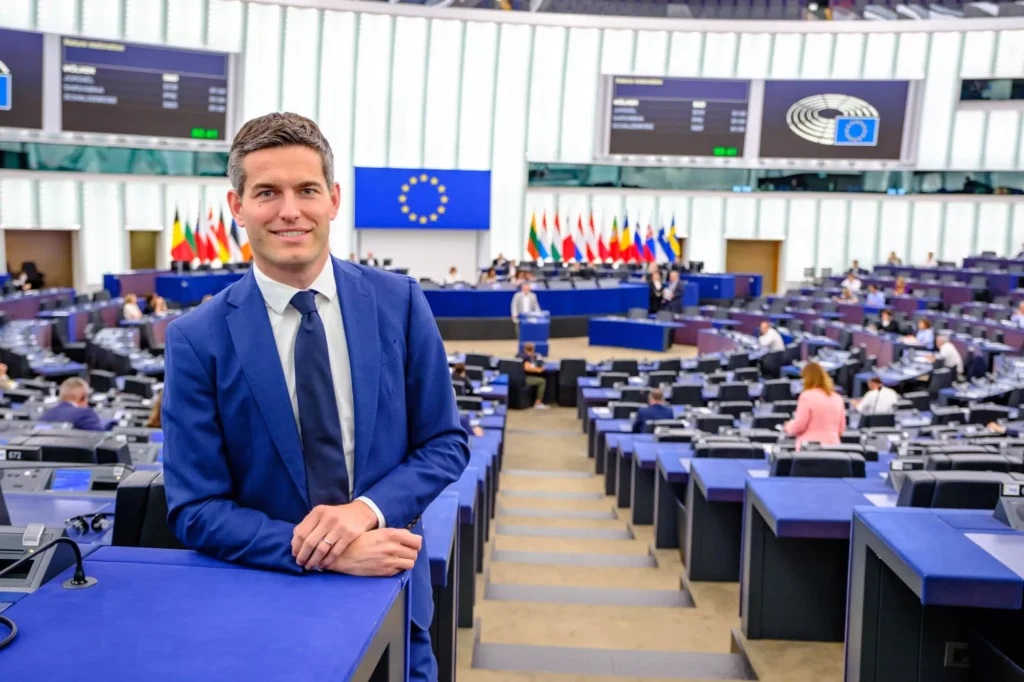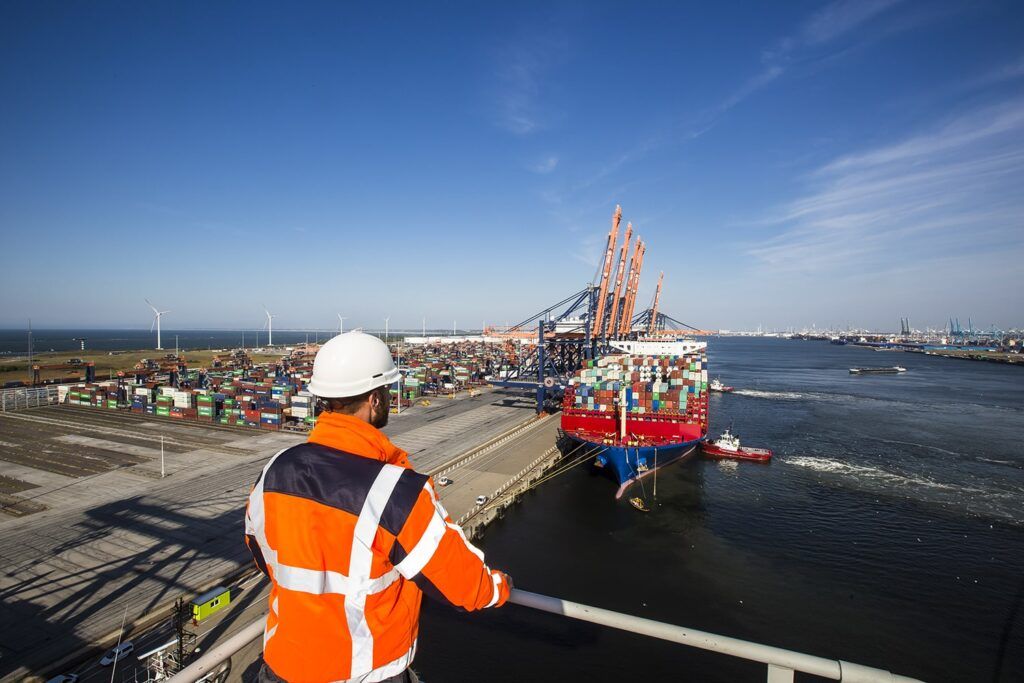
European port strategy: protectionism or competitiveness?
The European Union is committed to protecting the strategic role of its ports. And this is confirmed by the recent adoption of the report 'Comprehensive European Ports Strategy'. We spoke to Isabelle Ryckbost, secretary general of the European Sea Ports Association (ESPO), who explains the key points of the text and clarifies whether Europe is heading towards protectionism... or towards greater competitiveness.

The European Union is on the verge of elections that all analysts point out as perhaps the most important in the history of the Union, because of what they may imply for the future of European integration... or of its deceleration and stagnation, depending on the final balance of forces, in the midst of a global geostrategic pulse not seen since the times of the Cold War. Or perhaps since the end of World War II.
And it is possible that one of the many reasons why the European Union is at this crossroads is, among many other reasons, a lack of joint strategy on many issues.
This is not, fortunately, the case for European ports.
Thus, on the initiative of the Dutch MEP of the European People's Party (EPP) Tom Berendsen, author of the report 'Building a comprehensive European ports strategy' (2023/2059(INI), the European Parliament approved, earlier this year, to follow the path initiated by other laws and measures such as the Consortia Block Exemption Regulation (CBER) and those that make up the 'Fit for 55' package.
In this case, the focus is on foreign investments in a geopolitical context gripped by the Russian invasion in Ukraine. As Isabelle Ryckbost, secretary general of the European Sea Ports Association (ESPO), summarizes for PierNext, “imports from foreign investment have been on the European Commission's radar for some time. However, they have now taken on added importance as the war has greatly changed the way Europe views the world and the risk of espionage or boycotts. This report comes at the right time and recognizes the strategic role of ports in this context.”

The objectives of the report
Isabelle Ryckbost explains that this report has two main objectives:
“The first is to limit and/or monitor foreign influence in ports, while the second is to increase their competitiveness. ESPO has always advocated prudence and balance in the management control of critical port infrastructure by foreign investors”, she says.
It is not a question of rejecting investments from outside the Union, she points out, but simply of establishing the necessary mechanisms to ensure that they do not conceal geopolitical strategies or pose any risk to European security. The text, in fact, seeks to strike a balance between reinforcing European security and competitiveness and safeguarding an open trade, an attractive investment environment in which supply chains are resilient.

Key points, according to ESPO
Berendsen's report on the integrated strategy for European ports is divided into four sections, comprising a total of 50 points:
- Foreign influence
- Security
- The role of ports in the energy transition
- Competitiveness of the Union's ports and companies
Discussing the report with PierNext, ESPO's secretary general highlights what she considers to be the crucial points, the most important things to keep in mind:
- The fundamental role of ports in the energy transition, as established in the European Green Deal (point 27). ESPO's secretary general welcomes the recognition of this role and also stresses that it is accompanied by the planning of infrastructures to provide green energies, such as those for hydrogen.
- The need for an accelerated permitting procedure for port expansion in the context of the energy transition (point 29). For Ryckbost, this point will make it possible to speed up permitting procedures, which are usually slow and can delay ecological transition projects.
- European legislation must not undermine the competitiveness of EU ports or generate carbon and business leakage to ports outside the Union (point 35). The expert believes that this point is particularly relevant for Spanish ports, as it recognizes the possibility of carbon leakage and leakage of companies under the EU ETS and therefore the Commission calls for increased controls.
- The Commission is called upon to deliver on its ambition for modal shift, as formulated in the Green Deal, and to address the remaining challenges concerning inland waterways and in particular rail freight to enhance their uptake in ports and their connectivity with the hinterland (point 32). For ESPO, intermodality is a priority, as it is for many European ports.
- The report calls for increased funding for ports under the Connecting Europe Facility (point 50). For Ryckbost, specific budgets for projects that will develop seaports is very important and something ESPO has long been calling for.

ESPO's work with member ports and with the European Parliament
Ryckbost explains to PierNext that, internally, they sought the agreement of the ports affiliated to the organization on the main points of the agreement. ESPO has various technical committees and organizes internal meetings on different aspects such as the environment or governance.
“From the beginning we knew that foreign investment and influence would become very important, but in our case, we were interested in introducing the role of port competitiveness and how to strengthen it. At the beginning, we met with Tom Berendsen, who presented the report to us, and on the other hand, we provided information to policy makers on what our challenges and our needs are and what can work and what can't,” she shares.

Protectionism, lowered
One aspect that differed from the initial draft was the level of protectionism proposed, higher than in the text finally approved. “We understand the concern, but shipping is a global business; the cargo is foreign, the ships are foreign...if the concern is espionage or boycott, I don't think that by limiting investments to the European level we will avoid all the risks,” Ryckbost reflects.
And she points out that, in addition to being globalized, today's world is increasingly digital, so it is not necessary to be physically at a port to obtain information through illicit practices.
She also stresses that the ports already have procedures in place to avoid such situations. “Through their concession policy, ports have quite strict rules regarding those who operate their terminals. If in a complex geopolitical environment an operator becomes hostile towards Europe and threatens to stop using a terminal to boycott a port, it would be in breach of its concession contract, as these include performance criteria,” she says.
The ESPO Secretary General also recalls that ports are trade facilitators, but that in any case, decisions to cancel imports from certain countries lie with the States and the competent authorities, not with the port authorities.

Now what?
Elections to the European Parliament will be held on June 9 and the meetings of the new hemicycle will not begin until September, so it will be from then on that a new transport and energy committee will be formed and the corresponding budget will be allocated.
“This may change priorities. The flagship project of the current commission was largely the European Green Deal, although resilience has gradually been introduced; first with Covid and supply chains and then with the war in Ukraine and energy dependency,” Ryckbost notes.
From her point of view and from the current political and economic context, Europe has to improve its competitiveness, protect itself and reduce its dependence on third parties on critical issues.
She cites as an example the United States and its Inflation Reduction Act that seeks to attract, through subsidies, new energy industries, which may unlevel the playing field for Europe, as some European companies in the sector have already started to cross the Atlantic.
Europe's concern is the same as that of its ports, which is why it believes that the future commission will maintain climate strategies but increase resilience measures, including military preparedness, and probably, strengthening the internal market.
“These are the new guidelines that we expect, some of which are included in the text and could even be further developed,” she adds.
ESPO advocates not to close the doors, but to work on increasing the competitiveness of the European Union.
For Ryckbost, this comprehensive European port strategy conveys a clear vision of where European ports should be heading.



